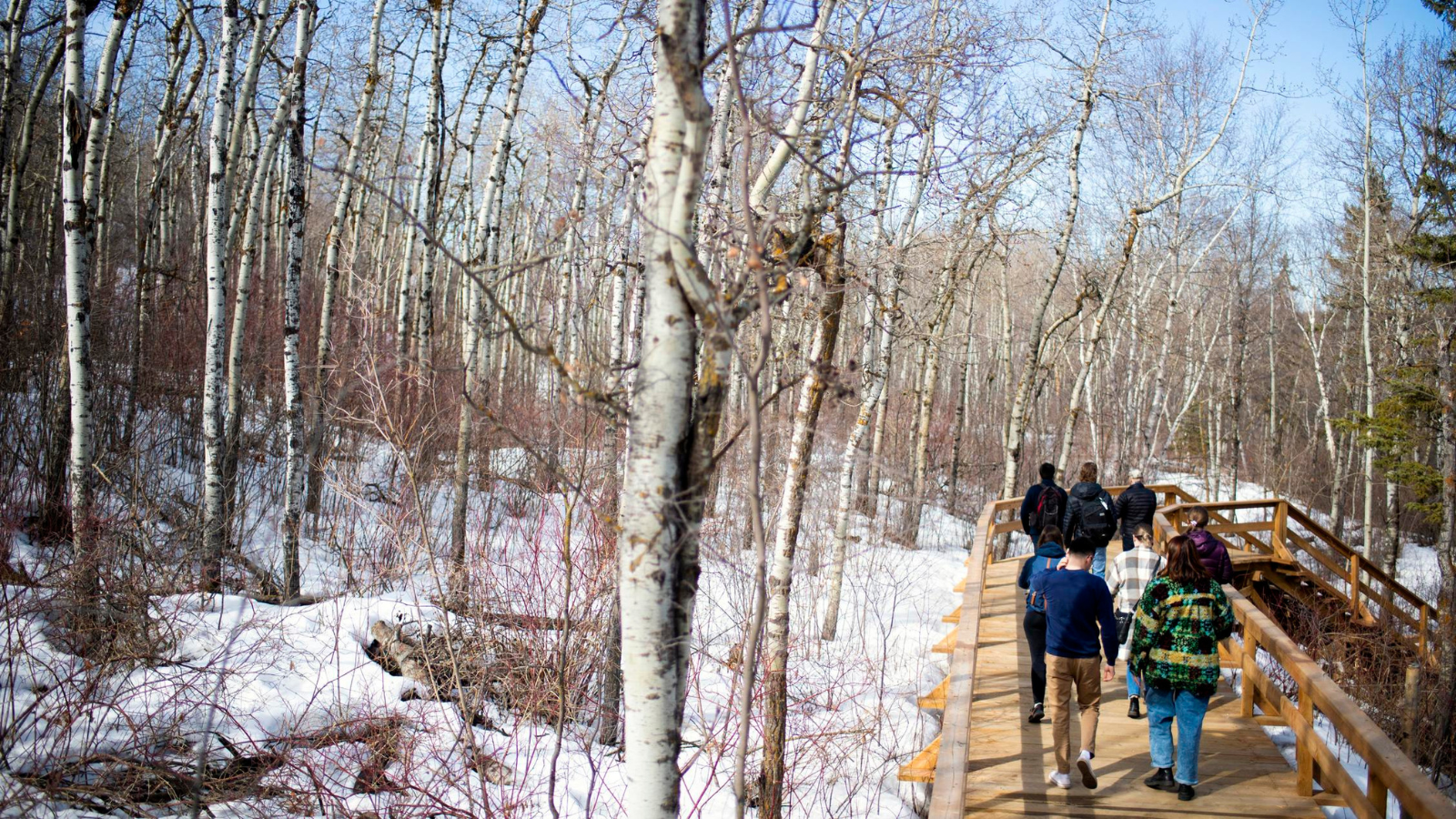What is the study of Culture, Society, and Peoples of Canada?
This major offers the study of environmental problems – including climate change, natural resource depletion, pollution and biodiversity loss – in a Canadian context. Explore Indigenous perspectives and issues in environmental and resource management after learning about colonization and social justice.
You’ll learn how these issues impact Canadians according to their culture and values to build relationships, address activism and even work to find a solution.
Students in this program gain the skills needed to work as policy makers in government contexts or partner with Indigenous communities. This flexible concentration allows students to specialize in their area of interest, such as taking courses in Native Studies and electives in agricultural, life and environmental sciences.
Featured Courses
This course examines different approaches to understanding the links between politics, society and ecology, including the key approaches utilized by political ecologists, political economy and discourse analysis.
Examines the relationship between development and environment at the local, regional, national and international levels. Critically discusses development strategies, the environmental and social forces promoting them, and the distribution of environmental and social impacts. Also examines alternative development strategies, sustainable development experiences and relevant international policy.
This course examines how humankind’s collective activities, including altering the climate, have significantly affected the natural planetary balance. We will discuss human population growth and unsustainable resource use; the movement of pollutants through the atmosphere, hydrosphere and biosphere; the impacts these stressors have on ecosystem services and human health; and how certain impacts have been and can be mitigated by environmental policies and laws.
The critical application of knowledge of resource management to the traditional economic activities, especially hunting, fishing and trapping. Diminution and depletion problems, which developed with the spread of the commercial economy, will be analyzed by examining Indigenous and European approaches to management.
Feature Careers
Sustainability specialists champion environmental best practices to help their team deliver a project that meets or exceeds green targets. They address issues such as waste-stream management, tracking and minimizing carbon emissions and other environmental impacts, green and social procurement practices, and achieving energy efficiency.
Conservation officers protect and manage natural resources and visitors in parks and on public lands. Are you passionate about protecting the environment? Do you have strong people skills? Do you love being outdoors? Do you deal effectively with difficult situations? Then you may find being a conservation officer is a natural career choice. Average salary: $74,795
Source: Government of Alberta, Occupations in Alberta
Careers
- Community Relations Specialist
- Sustainability Coordinator
- Environmental Education Specialist
- Policy Analyst
- Environmental/Indigenous Relations Advisor
- Writer
- Environmental Communications Officer
- Public Servant
- Sustainability Consultant
- NGO Administrator
Check out the U of A's Environmental Career Guide for more options.
You may also
be interested in:
Programs related the Culture, Society, and Peoples of Canada Concentration:

